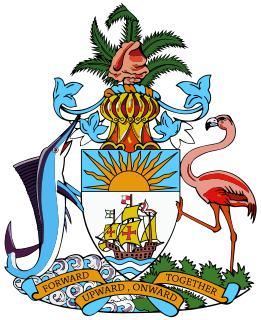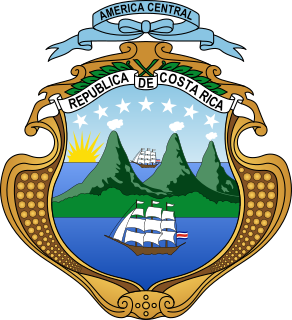
Elections in the Bahamas take place in the framework of a parliamentary democracy. Since independence voter turnout has been generally high in national elections, with a low of 87.9% in 1987 and a high of 98.5% in 1997. The current Prime Minister is the Hon Hubert Minnis.
The Democratic Party is a center-right party in Bulgaria led by Alexander Pramatarski. The party is a member of the European People's Party (EPP).

Parliamentary elections were held in Hungary on 7 April 2002, with a second round of voting in 131 of the 176 single member constituencies on 21 April. Although Fidesz remained the largest party in the National Assembly despite receiving fewer votes than the Hungarian Socialist Party, the Socialist Party was able to form a coalition government with the Alliance of Free Democrats.

A constitutional referendum was held in France on 21 October 1945. Voters were asked whether they approved of the Assembly elected on the same day serving as a Constituent Assembly, and whether until a new constitution was approved, the country would be governed according to a proposed set of laws that appeared on the ballot paper. If the first proposal had not been approved, the Third Republic would have been restored, but its approval led to the creation of the Fourth Republic. Both were approved by wide margins with a turnout of 79.8%.

A constitutional referendum was held in France on 5 May 1946. Voters were asked whether they approved of a new draft Constitution proposed by the Constituent Assembly elected in 1945.
Constitutional Assembly elections were held in Bulgaria on 10 June 1990, with a second round for eighteen seats on 17 June. They were the first elections held since the fall of Communism the previous winter, and the first free national elections since 1931. The elections were held to elect the 7th Grand National Assembly, tasked with adopting a new (democratic) constitution. The new electoral system was changed from 400 single-member constituencies used during the Communist era to a split system whereby half were elected in single member constituencies and half by proportional representation. The result was a victory for the Bulgarian Socialist Party, the freshly renamed Communist Party, which won 211 of the 400 seats. Voter turnout was 90.3%.

Constituent Assembly elections were held in Bulgaria between 1 and 30 January 1879, although only 117 of the 231 members of the Assembly were elected during this period. It followed the country's liberation from the Ottoman Empire, and saw the Conservative Party and the Liberal Party emerge as the two main parties. The Assembly was opened on 10 February, and convened in Veliko Tarnovo to ratify the country's first constitution, known as the Tarnovo Constitution, on 16 April. The parliament was later transferred to Sofia, which became the capital of the country.

Constituent Assembly elections were held in Costa Rica on 8 December 1948, following the Costa Rican Civil War. The result was a victory for the National Unity Party, which won 34 of the 45 seats. Voter turnout was 47.5%. The assembly drew up the 1949 constitution.

Constitutional Assembly elections were held in Venezuela on 27 October 1946, following a coup the year before which launched El Trienio Adeco. The result was a victory for Democratic Action, which won 137 of the 160 seats in the Assembly. Voter turnout was 86.6%.

Constitutional Assembly elections were held in Latvia on 17 and 18 April 1920. The Latvian Social Democratic Workers' Party emerged as the largest party, winning 57 of the 150 seats. The elections were boycotted by communist parties. The Constitutional Assembly was responsible for drafting a constitution, which was approved on 15 February and promulgated on 7 November 1922.
Elections for the Constituent Assembly were held in Denmark on 5 October 1848. Of the 158 seats in the Assembly, 114 were elected and 44 appointed by the King. An additional 31 candidates were to come from the Duchy of Schleswig but were not elected due to the First Schleswig War.
Parliamentary elections were held in Greece on 16 December 1843. The elected body was also tasked with drawing up a constitution, following the 3 September 1843 Revolution. The Three-Party Coalition won almost half the seats in the 243-seat Chamber.

Parliamentary elections were held in Portugal on 8 November 1925. The result was a victory for the Democratic Party, which won 83 of the 163 seats in the Chamber of Deputies and 39 of the 70 seats in the Senate. With a military coup the following year and the subsequent Estado Novo period, they were the last truly multi-party elections in the country until the 1975 Constituent Assembly election.

Parliamentary elections were held in Portugal on 16 December 1934, the first following the establishment of the one-party state known as the Estado Novo. The National Union was the only party to contest the elections, and no opposition candidates were allowed to run. It subsequently won all seats in the National Assembly, three of which were taken by women.

Parliamentary elections were held in Romania on 9 March 1975. The Front of Socialist Unity, dominated by the Romanian Communist Party and including other mass organisations, was the only organisation that contested the election. No prospective candidate could run for office without the Front's approval. The Front won all 349 seats in the Great National Assembly.

Constitutional Assembly elections were held in Uruguay on 25 June 1933. They followed a presidential coup by Gabriel Terra on 31 March, Following the coup, the Assembly was appointed to formulate a new constitution. The various factions of the Colorado Party emerged as the largest group in the Assembly, winning 151 of the 284 seats.

The Liberal Party, also known as the Radoslavists was a political party in Bulgaria from 1887 until 1920.
The People's Party was a political party in Bulgaria between 1894 and 1920.

The United Labour Social Democratic Party was a political party in Bulgaria.
The Settlers' Party was a political party in Estonia.












